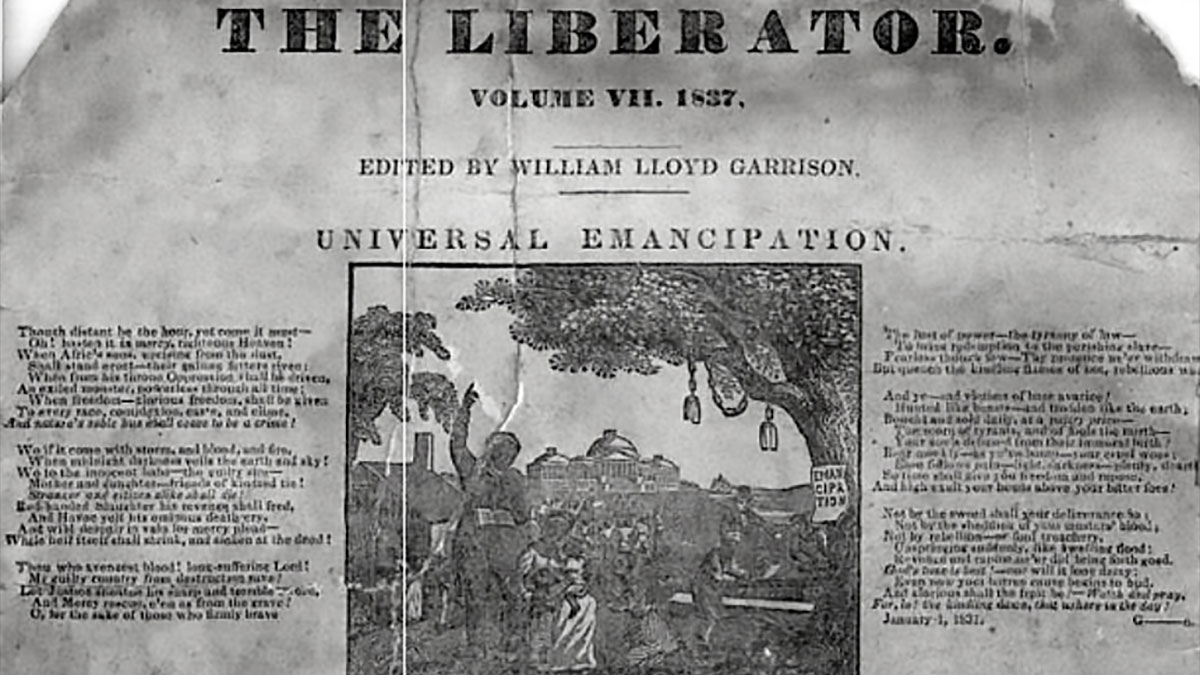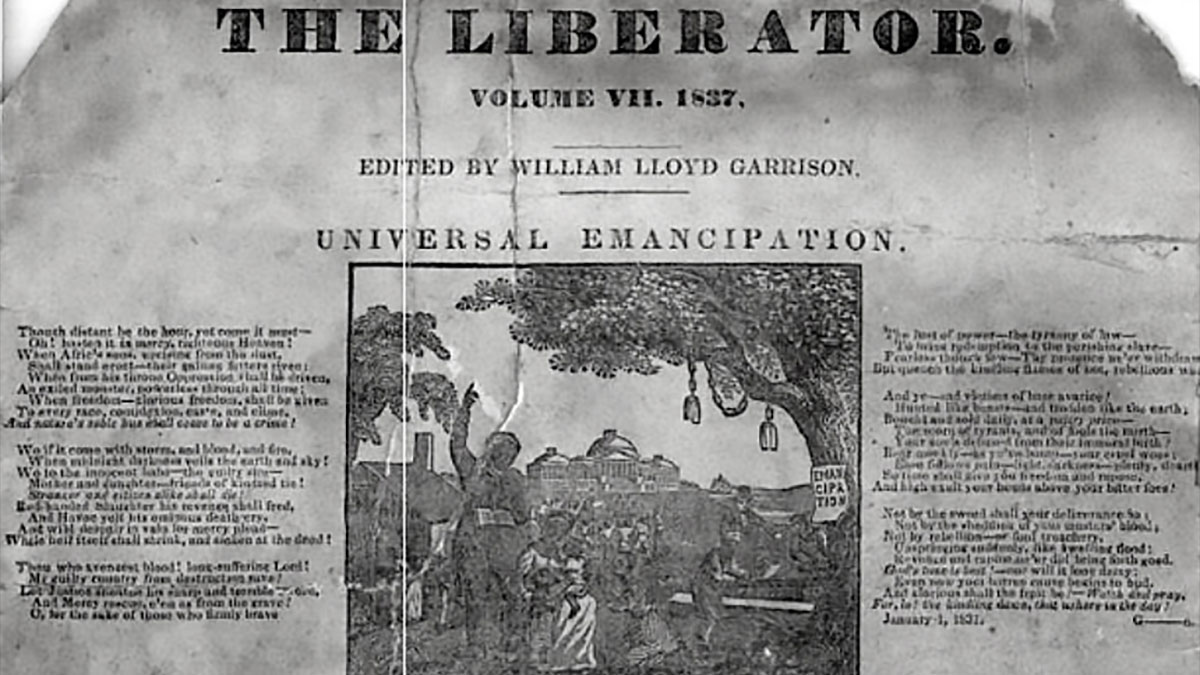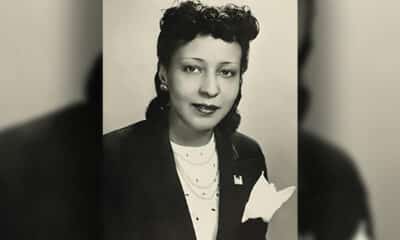Mississippi Today
On this day in 1865


Dec. 29, 1865

Months after the end of the Civil War, abolitionist leader William Lloyd Garrison produced the last issue of “The Liberator,” which he began publishing in 1831.
In the first issue, he wrote, “I will be as harsh as truth, and as uncompromising as justice. On this subject [of slavery], I do not wish to think, or speak, or write, with moderation. No! No! Tell a man whose house is on fire to give a moderate alarm; tell him to moderately rescue his wife from the hands of the ravisher; tell the mother to gradually extricate her babe from the fire into which it has fallen; —but urge me not to use moderation in a cause like the present. I am in earnest – I will not equivocate – I will not excuse – I will not retreat a single inch – and I will be heard.”
His fight to end slavery emanated from his deep faith, and he envisioned a world beyond bondage: “My Bible assures me that the day is coming when even the ‘wolf shall dwell with the lamb, and the leopard shall lie down with the kid, and the wolf and the young lion and the fatling together’; if this be possible, I see no cause why those of the same species—God’s rational creatures—fellow countrymen, in truth, cannot dwell in harmony together.”
Garrison worked, too, with the Underground Railroad and Harriet Tubman, whom he nicknamed “Moses.”
When the day came to celebrate the nation’s independence in 1854, Garrison and other members of the Massachusetts Anti-Slavery Society gathered for a picnic. He stood before them and chastised the U.S. Constitution, which regarded those enslaved as property, rather than people. He set a copy on fire and called it “a covenant with death and an agreement with hell.” He called for “amens” from the crowd, which exploded, “Amen!”
A pro-slavery mob tried to lynch him and would have succeeded if some sympathizers hadn’t turned him over instead to authorities. A gallows was even erected outside his office, and he was burned in effigy.
In addition to his work to end slavery, he became a leading advocate for women’s rights. With the last issue published, Garrison declared that his “vocation as an Abolitionist, thank God, has ended.” He continued to fight for the rights of African Americans and women. His works influenced Russian author Leo Tolstoy, Mahatma Gandhi and Martin Luther King Jr. A memorial in Boston now honors Garrison.
This article first appeared on Mississippi Today and is republished here under a Creative Commons license.
Did you miss our previous article…
https://www.biloxinewsevents.com/?p=318947
Mississippi Today
On this day in 1951, Ruby Hurley opened NAACP office in South
April 28, 1951

Ruby Hurley opened the first permanent office of the NAACP in the South.
Her introduction to civil rights activism began when she helped organize Marian Anderson’s 1939 concert at the Lincoln Memorial. Four years later, she became national youth secretary for the NAACP. In 1951, she opened the organization’s office in Birmingham to grow memberships in Alabama, Florida, Georgia, Mississippi and Tennessee.
When she arrived in Mississippi, there were only 800 NAACP members. After the governor made remarks she disagreed with, she wrote a letter to the editor that was published in a Mississippi newspaper. After that step in courage, membership grew to 4,000.
“They were surprised and glad to find someone to challenge the governor,” she told the Chicago Defender. “No Negro had ever challenged the governor before.”
She helped Medgar Evers investigate the 1955 murder of Emmett Till and other violence against Black Americans. Despite threats, she pushed on.
“When you’re in the middle of these situations, there’s no room for fear,” she said. “If you have fear in your heart or mind, you can’t do a good job.”
After an all-white jury acquitted Till’s killers, she appeared on the front cover of Jet magazine with the headline, “Most Militant Negro Woman in the South.”
Months later, she helped Autherine Lucy become the first Black student at the University of Alabama.
For her work, she received many threats, including a bombing attempt on her home. She opened an NAACP office in Atlanta, where she served as a mentor for civil rights leader Vernon Jordan, with whom she worked extensively and who went on to serve as an adviser to President Bill Clinton.
After learning of Evers’ assassination in 1963, she became overwhelmed with sorrow. “I cried for three hours,” she said. “I shall always remember that pool of blood in which he lay and that spattered blood over the car where he tried to drag himself into the house.”
She died two years after retiring from the NAACP in 1978, and the U.S. Post Office recognized her work in the Civil Rights Pioneers stamp series. In 2022, she was portrayed in the ABC miniseries, “Women of the Movement.”
This article first appeared on Mississippi Today and is republished here under a Creative Commons Attribution-NoDerivatives 4.0 International License.![]()
Note: The following A.I. based commentary is not part of the original article, reproduced above, but is offered in the hopes that it will promote greater media literacy and critical thinking, by making any potential bias more visible to the reader –Staff Editor.
Political Bias Rating: Centrist
This content is primarily focused on the historical and personal achievements of Ruby Hurley, a civil rights activist. It emphasizes her dedication and bravery in challenging oppressive systems and advocating for racial justice. The narrative does not appear to endorse or criticize any contemporary political positions but highlights Hurley’s work with the NAACP and her role in significant civil rights events. While it mentions her opposition to certain government figures and the threat she faced, the tone is largely factual and centered on her contributions to history, which supports a centrist position without leaning toward a particular ideological side.
Mississippi Today
Podcast: Mississippi citizens often left in the dark on special-interest lobbying of politicians
The post Podcast: Mississippi citizens often left in the dark on special-interest lobbying of politicians appeared first on mississippitoday.org
Note: The following A.I. based commentary is not part of the original article, reproduced above, but is offered in the hopes that it will promote greater media literacy and critical thinking, by making any potential bias more visible to the reader –Staff Editor.
Political Bias Rating: Center-Left
This content reflects a Center-Left bias primarily due to its focus on transparency issues regarding special-interest spending and lobbying in Mississippi. The mention of negative implications associated with lobbying efforts suggests an advocacy for accountability and reform, which aligns with a progressive stance often seen in Center-Left discourse. Additionally, the subject matter, involving regulation of online sports betting, typically garners support from more liberal perspectives concerned about consumer protection and ethical governance.
Mississippi Today
Derrick Simmons: Monday’s Confederate Memorial Day recognition is awful for Mississippians
Editor’s note: This essay is part of Mississippi Today Ideas, a platform for thoughtful Mississippians to share fact-based ideas about our state’s past, present and future. You can read more about the section here.
Each year, in a handful of states, public offices close, flags are lowered and official ceremonies commemorate “Confederate Memorial Day.”
Mississippi is among those handful of states that on Monday will celebrate the holiday intended to honor the soldiers who fought for the Confederacy during the Civil War.
But let me be clear: celebrating Confederate Memorial Day is not only racist but is bad policy, bad governance and a deep stain on the values we claim to uphold today.
First, there is no separating the Confederacy from the defense of slavery and white supremacy. The Confederacy was not about “states’ rights” in the abstract; it was about the right to own human beings. Confederate leaders themselves made that clear.
Confederate Vice President Alexander Stephens declared in his infamous “Cornerstone Speech” that the Confederacy was founded upon “the great truth that the negro is not equal to the white man.” No amount of revisionist history can erase the fact that the Confederacy’s cause was fundamentally rooted in preserving racial subjugation.
To honor that cause with a state holiday is to glorify a rebellion against the United States fought to defend the indefensible. It is an insult to every citizen who believes in equality and freedom, and it is a cruel slap in the face to Black Americans, whose ancestors endured the horrors of slavery and generations of systemic discrimination that followed.
Beyond its moral bankruptcy, Confederate Memorial Day is simply bad public policy. Holidays are public statements of our values. They are moments when a state, through official sanction, tells its citizens: “This is what we believe is worthy of honor.” Keeping Confederate Memorial Day on the calendar sends a message that a government once committed to denying basic human rights should be celebrated.
That message is not just outdated — it is dangerous. It nurtures the roots of racism, fuels division and legitimizes extremist ideologies that threaten our democracy today.
Moreover, there are real economic and administrative costs to shutting down government offices for this purpose. In a time when states face budget constraints, workforce shortages and urgent civic challenges, it is absurd to prioritize paid time off to commemorate a failed and racist insurrection. Our taxpayer dollars should be used to advance justice, education, infrastructure and economic development — not to prop up a lost cause of hate.
If we truly believe in moving forward together as one people, we must stop clinging to symbols that represent treason, brutality and white supremacy. There is a legislative record that supports this move in a veto-proof majority changing the state Confederate flag in 2020. Taking Confederate Memorial Day off our official state holiday calendar is another necessary step toward a more inclusive and just society.
Mississippi had the largest population of enslaved individuals in 1865 and today has the highest percentage of Black residents in the United States. We should not honor the Confederacy or Confederate Memorial Day. We should replace it.
Replacing a racist holiday with one that celebrates emancipation underscores the state’s rich African American history and promotes a more inclusive understanding of its past. It would also align the state’s observances with national efforts to commemorate the end of slavery and the ongoing pursuit of equality.
I will continue my legislative efforts to replace Confederate Memorial Day as a state holiday with Juneteenth, which commemorates the freedom for America’s enslaved people.
It’s time to end Confederate Memorial Day once and for all.
Derrick T. Simmons, D-Greensville, serves as the minority leader in the state Senate. He represents Bolivar, Coahoma and Washington counties in the Mississippi Senate.
This article first appeared on Mississippi Today and is republished here under a Creative Commons Attribution-NoDerivatives 4.0 International License.
The post Derrick Simmons: Monday's Confederate Memorial Day recognition is awful for Mississippians appeared first on mississippitoday.org
Note: The following A.I. based commentary is not part of the original article, reproduced above, but is offered in the hopes that it will promote greater media literacy and critical thinking, by making any potential bias more visible to the reader –Staff Editor.
Political Bias Rating: Left-Leaning
This article argues against the celebration of Confederate Memorial Day, stating it glorifies a racist and failed rebellion that is harmful to societal values. It critiques the holiday as a symbol of white supremacy and advocates for replacing it with Juneteenth to honor emancipation. The language used, such as referring to the Confederate cause as “moral bankruptcy,” and the call to replace the holiday reflects a progressive stance on social justice and racial equality, common in left-leaning perspectives. Additionally, the writer urges action for inclusivity and justice, positioning the argument within modern liberal values.
-

 SuperTalk FM6 days ago
SuperTalk FM6 days agoNew Amazon dock operations facility to bring 1,000 jobs to Marshall County
-

 News from the South - Missouri News Feed2 days ago
News from the South - Missouri News Feed2 days agoMissouri lawmakers on the cusp of legalizing housing discrimination
-

 News from the South - Alabama News Feed7 days ago
News from the South - Alabama News Feed7 days agoPrayer Vigil Held for Ronald Dumas Jr., Family Continues to Pray for His Return | April 21, 2025 | N
-

 News from the South - Florida News Feed6 days ago
News from the South - Florida News Feed6 days agoTrump touts manufacturing while undercutting state efforts to help factories
-

 News from the South - Florida News Feed6 days ago
News from the South - Florida News Feed6 days agoFederal report due on Lumbee Tribe of North Carolina’s path to recognition as a tribal nation
-

 Mississippi Today4 days ago
Mississippi Today4 days agoStruggling water, sewer systems impose ‘astronomic’ rate hikes
-

 News from the South - Oklahoma News Feed6 days ago
News from the South - Oklahoma News Feed6 days agoOklahoma Treasurer’s Office Faces Scrutiny Over Use of Signal in Anti-ESG Coordination
-

 Mississippi Today22 hours ago
Mississippi Today22 hours agoDerrick Simmons: Monday’s Confederate Memorial Day recognition is awful for Mississippians











































